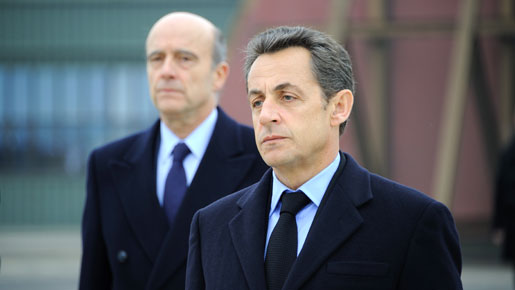
French trains, schools and public services were hit on Tuesday by protests over pensions and wages, with unions looking to capitalise on a hefty defeat for President Nicolas Sarkozy at weekend regional elections.
Up to half of all regional trains weren’t running and a third of high speed services were cancelled, while unions said that 50 percent of teachers would skip work and join nationwide demonstrations against Sarkozy’s economic policies.
On Sunday Sarkozy’s centre-right allies suffered their worst electoral defeat in more than five decades, as leftist parties swept to power in 23 out of France’s 26 regions.
Sarkozy responded by overseeing a rejig of his cabinet, sacking the minister who had been set to lead negotiations on a pensions reform after he fared particularly badly in the vote.
Budget Minister Eric Woerth, seen as a safe pair of hands, was promoted to head the labour ministry and take over the pension talks, while three newcomers were called into the government to bolster the conservative and centrist ranks.
Union leaders dismissed the reshuffle, saying it would do nothing to revive the economy and accusing Sarkozy of failing to understand that the mood had changed in France.
“Ever since Sunday we have heard (the centre-right) say ‘we are going to maintain our course’. They aren’t listening and that poses a real problem,” said Bernard Thibault, head of the large CGT union which is leading Tuesday’s protests.
He urged Sarkozy to call labour leaders and employers together to discuss ways of boosting salaries, and warned the government to expect determined opposition to its planned overhaul of the state pensions system.
“I am convinced that we cannot impose a pensions reform that is based exclusively on accounting and financial criteria,” he told Europe 1 radio. “A reform will be very complicated.”
The government, looking to tame a record debt and budget deficit, wants people to work longer before drawing full pensions and is likely to push for a rise in the retirement age, which at 60 is one of the lowest levels in the leading EU countries.
Talks with unions are due to begin in the next few weeks.
Tuesday’s protests will culminate in demonstrations in many major French cities. It was the latest in a long line of “action days” called by major unions over the past two years to denounce the government’s handling of the economy.
The protest movement appeared to fade at the end of 2009, but with the unemployment rate back up above 10 percent and Sarkozy in political difficulty, unions were hoping for a major turnout on Tuesday.

